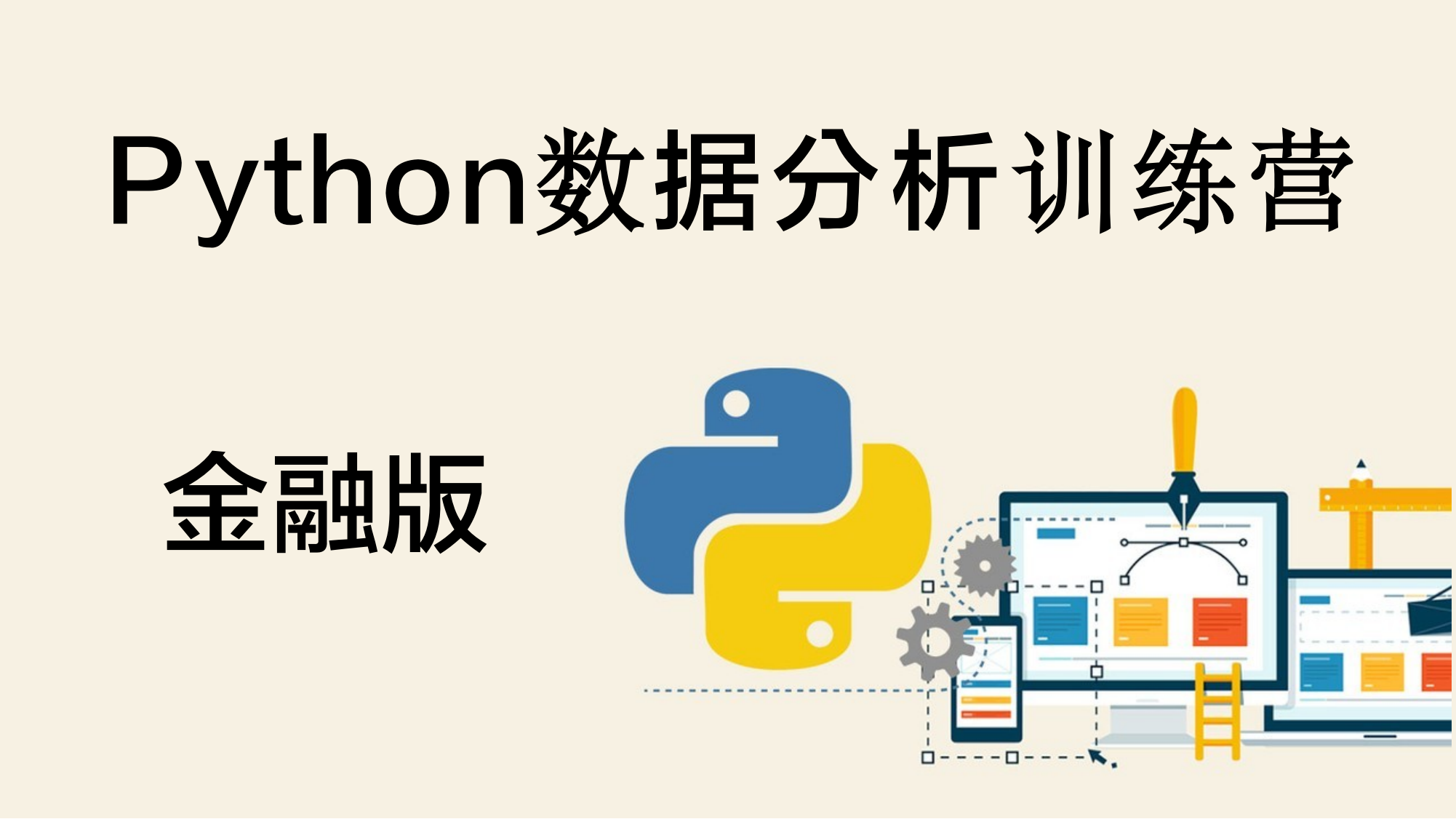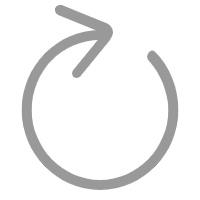优先队列(priority queue)
普通的队列是一种先进先出的数据结构,元素在队列尾追加,而从队列头删除。在优先队列中,元素被赋予优先级。当访问元素时,具有最高优先级的元素最先删除。优先队列具有最高进先出 (largest-in,first-out)的行为特征。
例如下图:任务的优先权及执行顺序的关系

优先队列是0个或多个元素的集合,每个元素都有一个优先权或值
时间复杂度
Push时进行排序
有序链表(即顺序存储结构),则插入时找插入点的时间复杂度为O(n)
直接出链表表头(也就是队头元素)的时间复杂度为O(1)
Pop时进行遍历
有序链表(即顺序存储结构),则插入时找插入点的时间复杂度为O(1)
遍历出优先级最高的链表表头(也就是队头元素)的时间复杂度为O(n)
======================================================================================================
队列是一种特殊的线性表,特殊之处在于它只允许在表的前端(front)进行删除操作,而在表的后端(rear)进行插入操作,和栈一样,队列是一种操作受限制的线性表。进行插入操作的端称为队尾,进行删除操作的端称为队头。队列中没有元素时,称为空队列。
在队列这种数据结构中,最先插入的元素将是最先被删除的元素;反之最后插入的元素将是最后被删除的元素,因此队列又称为“先进先出”(FIFO—first in first out)的线性表。
队列(Queue)是只允许在一端进行插入,而在另一端进行删除的运算受限的线性表
(1)允许删除的一端称为队头(Front)。
(2)允许插入的一端称为队尾(Rear)。
(3)当队列中没有元素时称为空队列。
(4)队列亦称作先进先出(First In First Out)的线性表,简称为FIFO表。
队列的修改是依先进先出的原则进行的。新来的成员总是加入队尾(即不允许"加塞"),每次离开的成员总是队列头上的(不允许中途离队),即当前"最老的"成员离队。

链式存储结构
在计算机中用一组任意的存储单元存储线性表的数据元素(这组存储单元可以是连续的,也可以是不连续的).
它不要求逻辑上相邻的元素在物理位置上也相邻.因此它没有顺序存储结构所具有的弱点,但也同时失去了顺序表可随机存取的优点.
链式存储结构特点:
1、比顺序存储结构的存储密度小 (每个节点都由数据域和指针域组成,所以相同空间内假设全存满的话顺序比链式存储更多)。
2、逻辑上相邻的节点物理上不必相邻。
3、插入、删除灵活 (不必移动节点,只要改变节点中的指针)。
4、查找结点时链式存储要比顺序存储慢。
5、每个结点是由数据域和指针域组成。
~~~~~~~~~~~~~~~~~~~~~~~~~~~~~~~~~~~~~~~~~~~~~~~~~~~~~~~~~~~~~~~~~~~~~~~~~~~~~~~~~~~~~~~~~~~~~~~~~~~~~~~~~~~~~~~~~~~
以后的笔记潇汀会尽量详细讲解一些相关知识的,希望大家继续关注、支持、顶起我的博客。
你们的关注就是我的动力,本节笔记到这里就结束了。
潇汀一有时间就会把自己的学习心得,觉得比较好的知识点写出来和大家一起分享。
编程开发的路很长很长,非常希望能和大家一起交流,共同学习,共同进步。
如果文章中有什么疏漏的地方,也请大家留言指正。也希望大家可以多留言来和我探讨编程相关的问题。
最后,谢谢你们一直的支持~~~
------------------------------------------
Country: China
Tel: +86-152******41
QQ: 451292510
E-mail: xiaoting_chen2010@163.com
------------------------------------------
C++完整个代码示例(代码在VS2005下测试可运行)

AL_QueuePriorityList.h
/**
@(#)$Id: AL_QueuePriorityList.h 40 2013-09-10 09:14:44Z xiaoting $
@brief
////////////////////////////////Priority queue (priority queue)e//////////////////////////////////////////
Common queue is a FIFO data structure, the end of an additional element in the queue, and the head removed from the queue. In the
priority queue element is given priority. When accessing the element, the element with the highest priority first removed. Priority
queue with the highest first-out (largest-in, first-out) the behavioral characteristics.
Priority queue is 0 or more elements of the collection, each element has a priority or value of the operations performed on the
priority queue with a) Find; 2) Insert a new element; 3) Delete in the minimum priority queue (min priorityq ueue), the lookup
operation to search for smallest element priority, delete operation to remove the element; for maximum priority queue (max priority
queue), lookup to search for the largest element of the priority, delete operation is used remove the element. priority queue
element can have the same priority, find and delete operations can be carried out according to any priority.
A queue is a special linear form, so special is that it only allows the front end of the table (front) delete operation,
and the rear end of the table (rear) for insertion, and the stack, as the queue is an operating by restricted linear form. Insert
operation is called the tail end, the end delete operation called HOL. No element in the queue, it is called an empty queue.
This data structure in the queue, the first element inserted will be the first element to be removed; otherwise the last inserted
element will be the last element to be removed, so the queue is also known as "first in first out" (FIFO-first in first out) linear
form.
@Author $Author: xiaoting $
@Date $Date: 2013-09-10 17:14:44 +0800 (周二, 10 九月 2013) $
@Revision $Revision: 40 $
@URL $URL: https://svn.code.sf.net/p/xiaoting/game/trunk/MyProject/AL_DataStructure/groupinc/AL_QueuePriorityList.h $
@Header $Header: https://svn.code.sf.net/p/xiaoting/game/trunk/MyProject/AL_DataStructure/groupinc/AL_QueuePriorityList.h 40 2013-09-10 09:14:44Z xiaoting $
*/
#ifndef CXX_AL_QUEUEPRIORITYLIST_H
#define CXX_AL_QUEUEPRIORITYLIST_H
///////////////////////////////////////////////////////////////////////////
// AL_QueuePriorityList
///////////////////////////////////////////////////////////////////////////
template<typename T>
class AL_QueuePriorityList
{
public:
/**
* Construction Constructed using the default priority queue
*
* @param
* @return
* @note
* @attention The default precedence relations: big > small
*/
AL_QueuePriorityList();
/**
* Destruction
*
* @param
* @return
* @note
* @attention
*/
~AL_QueuePriorityList();
/**
* IsEmpty
*
* @param VOID
* @return BOOL
* @note Returns true queue is empty
* @attention
*/
BOOL IsEmpty() const;
/**
* Front
*
* @param VOID
* @return T
* @note Returns a reference to the first element at the front of the queue.
* @attention
*/
T Front() const;
/**
* Back
*
* @param VOID
* @return T
* @note Returns a reference to the last and most recently added element at the back of the queue.
* @attention
*/
T Back() const;
/**
* Pop
*
* @param VOID
* @return T
* @note Removes an element from the front of the queue.
* @attention
*/
T Pop();
/**
* Push
*
* @param const T& tTemplate
* @return BOOL
* @note Adds an element to the back of the queue.
* @attention
*/
BOOL Push(const T& tTemplate);
/**
* Size
*
* @param VOID
* @return DWORD
* @note Returns the number of elements in the queue
* @attention
*/
DWORD Size() const;
/**
* Clear
*
* @param VOID
* @return VOID
* @note clear all data
* @attention
*/
VOID Clear();
protected:
private:
public:
protected:
private:
AL_Node<T>* m_pHeader;
DWORD m_dwSize;
AL_Node<T>* m_pFront;
AL_Node<T>* m_pRear;
};
/**
* Construction Constructed using the default priority queue
*
* @param
* @return
* @note
* @attention The default precedence relations: big > small
*/
template<typename T>
AL_QueuePriorityList<T>::AL_QueuePriorityList():
m_pHeader(NULL),
m_dwSize(0x00),
m_pFront(NULL),
m_pRear(NULL)
{
m_pHeader = new AL_Node<T>;
}
/**
* Destruction
*
* @param
* @return
* @note
* @attention
*/
template<typename T>
AL_QueuePriorityList<T>::~AL_QueuePriorityList()
{
Clear();
//delete the header
if (NULL != m_pHeader) {
delete m_pHeader;
m_pHeader = NULL;
}
}
/**
* IsEmpty
*
* @param VOID
* @return BOOL
* @note Returns true queue is empty
* @attention
*/
template<typename T> BOOL
AL_QueuePriorityList<T>::IsEmpty() const
{
return (0x00 == m_pHeader->m_pNext) ? TRUE:FALSE;
}
/**
* Front
*
* @param VOID
* @return T
* @note Returns a reference to the first element at the front of the queue.
* @attention
*/
template<typename T> T
AL_QueuePriorityList<T>::Front() const
{
T tTypeTemp;
memset(&tTypeTemp, 0x00, sizeof(T));
if (TRUE ==IsEmpty()) {
return tTypeTemp;
}
return m_pFront->m_data;
}
/**
* Back
*
* @param VOID
* @return T
* @note Returns a reference to the last and most recently added element at the back of the queue.
* @attention
*/
template<typename T> T
AL_QueuePriorityList<T>::Back() const
{
T tTypeTemp;
memset(&tTypeTemp, 0x00, sizeof(T));
if (TRUE ==IsEmpty()) {
return tTypeTemp;
}
return m_pRear->m_data;
}
/**
* Pop
*
* @param VOID
* @return T
* @note Removes an element from the front of the queue.
* @attention
*/
template<typename T> T
AL_QueuePriorityList<T>::Pop()
{
T tTypeTemp;
memset(&tTypeTemp, 0x00, sizeof(T));
if (TRUE ==IsEmpty()) {
return tTypeTemp;
}
AL_Node<T>* pPop = m_pFront;
//get the previous node of m_pRear
m_pHeader->m_pNext = m_pFront->m_pNext;
m_pFront = m_pHeader->m_pNext;
tTypeTemp = pPop->m_data;
//delete the top
delete pPop;
pPop = NULL;
m_dwSize--;
return tTypeTemp;
}
/**
* Push
*
* @param const T& tTemplate
* @return BOOL
* @note Adds an element to the back of the queue.
* @attention
*/
template<typename T> BOOL
AL_QueuePriorityList<T>::Push(const T& tTemplate)
{
AL_Node<T>* pPush = new AL_Node<T>;
if (NULL == pPush) {
//new error
return FALSE;
}
pPush->m_data = tTemplate;
if (TRUE == IsEmpty()) {
//the first time Push, not need to ++
m_pHeader->m_pNext = pPush;
m_pFront = m_pHeader->m_pNext;
m_pRear = pPush;
}
else {
AL_Node<T>* pMove = m_pFront;
AL_Node<T>* pMovePre = m_pFront;
while(NULL != pMove) {
if (tTemplate > pMove->m_data) {
//bigger
break;
}
pMovePre = pMove;
pMove = pMove->m_pNext;
}
if (NULL == pMove) {
//smallest in the queue
m_pRear->m_pNext = pPush;
m_pRear = pPush;
}
else {
if (m_pFront == pMovePre) {
//inset to the front
pPush->m_pNext = m_pFront;
m_pFront = pPush;
m_pHeader->m_pNext = m_pFront;
}
else {
pPush->m_pNext = pMovePre->m_pNext;
pMovePre->m_pNext = pPush;
}
}
}
m_dwSize++;
return TRUE;
}
/**
* Size
*
* @param VOID
* @return DWORD
* @note Returns the number of elements in the queue
* @attention
*/
template<typename T> DWORD
AL_QueuePriorityList<T>::Size() const
{
return m_dwSize;
}
/**
* Clear
*
* @param VOID
* @return VOID
* @note clear all data
* @attention
*/
template<typename T> VOID
AL_QueuePriorityList<T>::Clear()
{
AL_Node<T>* pDelete = NULL;
while(NULL != m_pHeader->m_pNext){
//get the node
pDelete = m_pHeader->m_pNext;
m_pHeader->m_pNext = pDelete->m_pNext;
delete pDelete;
pDelete = NULL;
}
m_dwSize = 0x00;
}
#endif // CXX_AL_QUEUEPRIORITYLIST_H
/* EOF */
测试代码
#ifdef TEST_AL_QUEUEPRIORITYLIST
AL_QueuePriorityList<DWORD> cQueuePriorityList;
BOOL bEmpty = cQueuePriorityList.IsEmpty();
std::cout<<bEmpty<<std::endl;
DWORD dwSize = cQueuePriorityList.Size();
std::cout<<dwSize<<std::endl;
DWORD dwFront = cQueuePriorityList.Front();
std::cout<<dwFront<<std::endl;
DWORD dwBack = cQueuePriorityList.Back();
std::cout<<dwBack<<std::endl;
DWORD dwPop = cQueuePriorityList.Pop();
std::cout<<dwPop<<std::endl;
cQueuePriorityList.Push(999);
bEmpty = cQueuePriorityList.IsEmpty();
std::cout<<bEmpty<<std::endl;
dwSize = cQueuePriorityList.Size();
std::cout<<dwSize<<std::endl;
dwFront = cQueuePriorityList.Front();
std::cout<<dwFront<<std::endl;
dwBack = cQueuePriorityList.Back();
std::cout<<dwBack<<std::endl;
dwPop = cQueuePriorityList.Pop();
std::cout<<dwPop<<std::endl;
DWORD dwTestNum[]={14,10,56,7,83,22,36,91,3,47,72,0,91,100,7};
for (DWORD dwCnt=0; dwCnt<(sizeof(dwTestNum)/sizeof(DWORD)); dwCnt++) {
cQueuePriorityList.Push(dwTestNum[dwCnt]);
dwBack = cQueuePriorityList.Back();
std::cout<<dwTestNum[dwCnt]<<std::endl;
}
dwSize = cQueuePriorityList.Size();
std::cout<<dwSize<<std::endl;
for (DWORD dwCount=0; dwCount<dwSize; dwCount++) {
dwPop = cQueuePriorityList.Pop();
std::cout<<dwPop<<std::endl;
}
struct sMySelfData {
BOOL operator > (sMySelfData sData) const{
return this->dwPriority > sData.dwPriority;
}
DWORD dwPriority;
DWORD dwValue;
};
// class sMySelfData {
// public:
// BOOL operator > (sMySelfData sData) const{
// return this->dwPriority > sData.dwPriority;
// }
// DWORD dwPriority;
// DWORD dwValue;
// };
bEmpty = cQueuePriorityList.IsEmpty();
std::cout<<bEmpty<<std::endl;
dwSize = cQueuePriorityList.Size();
std::cout<<dwSize<<std::endl;
dwFront = cQueuePriorityList.Front();
std::cout<<dwFront<<std::endl;
dwBack = cQueuePriorityList.Back();
std::cout<<dwBack<<std::endl;
dwPop = cQueuePriorityList.Pop();
std::cout<<dwPop<<std::endl;
//test myself data
sMySelfData sData1;
memset(&sData1, 0x00, sizeof(sMySelfData));
sMySelfData sData2;
memset(&sData1, 0x00, sizeof(sMySelfData));
sMySelfData sData3;
memset(&sData1, 0x00, sizeof(sMySelfData));
sMySelfData sData4;
memset(&sData1, 0x00, sizeof(sMySelfData));
sData1.dwPriority = 1;
sData1.dwValue = 1;
sData2.dwPriority = 2;
sData2.dwValue = 2;
sData3.dwPriority = 3;
sData3.dwValue = 3;
sData4.dwPriority = 2;
sData4.dwValue = 4;
sMySelfData sData5;
AL_QueuePriorityList<sMySelfData> cQueuePriorityListMy;
cQueuePriorityListMy.Push(sData1);
cQueuePriorityListMy.Push(sData2);
cQueuePriorityListMy.Push(sData3);
cQueuePriorityListMy.Push(sData4);
dwSize = cQueuePriorityListMy.Size();
std::cout<<dwSize<<std::endl;
sMySelfData sData;
memset(&sData, 0x00, sizeof(sMySelfData));
for (DWORD dwCount=0; dwCount<dwSize; dwCount++) {
memset(&sData, 0x00, sizeof(sMySelfData));
sData = cQueuePriorityListMy.Pop();
std::cout<<sData.dwPriority<<" "<<sData.dwValue<<std::endl;
}
#endif
© 著作权归作者所有
相关热门文章
发表评论





 点击刷新
点击刷新


